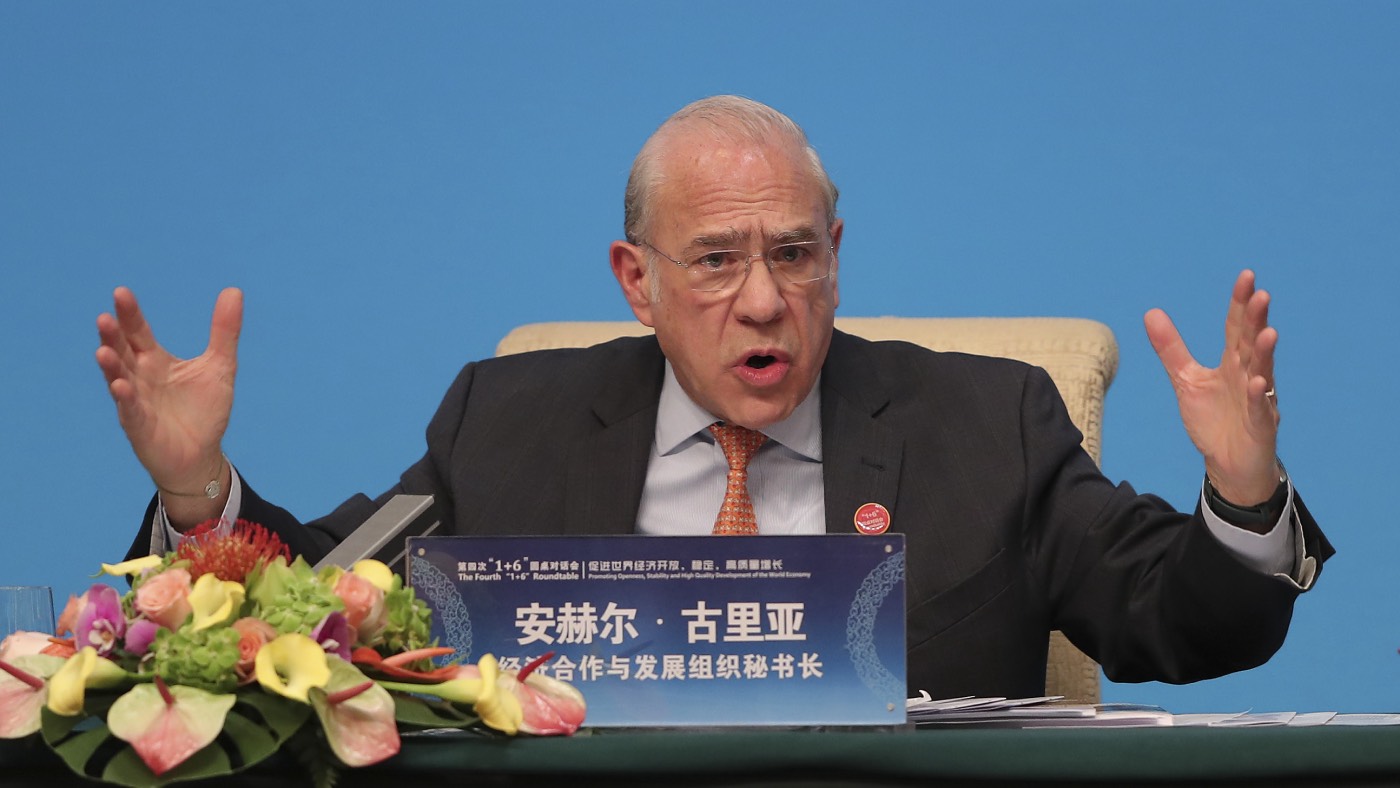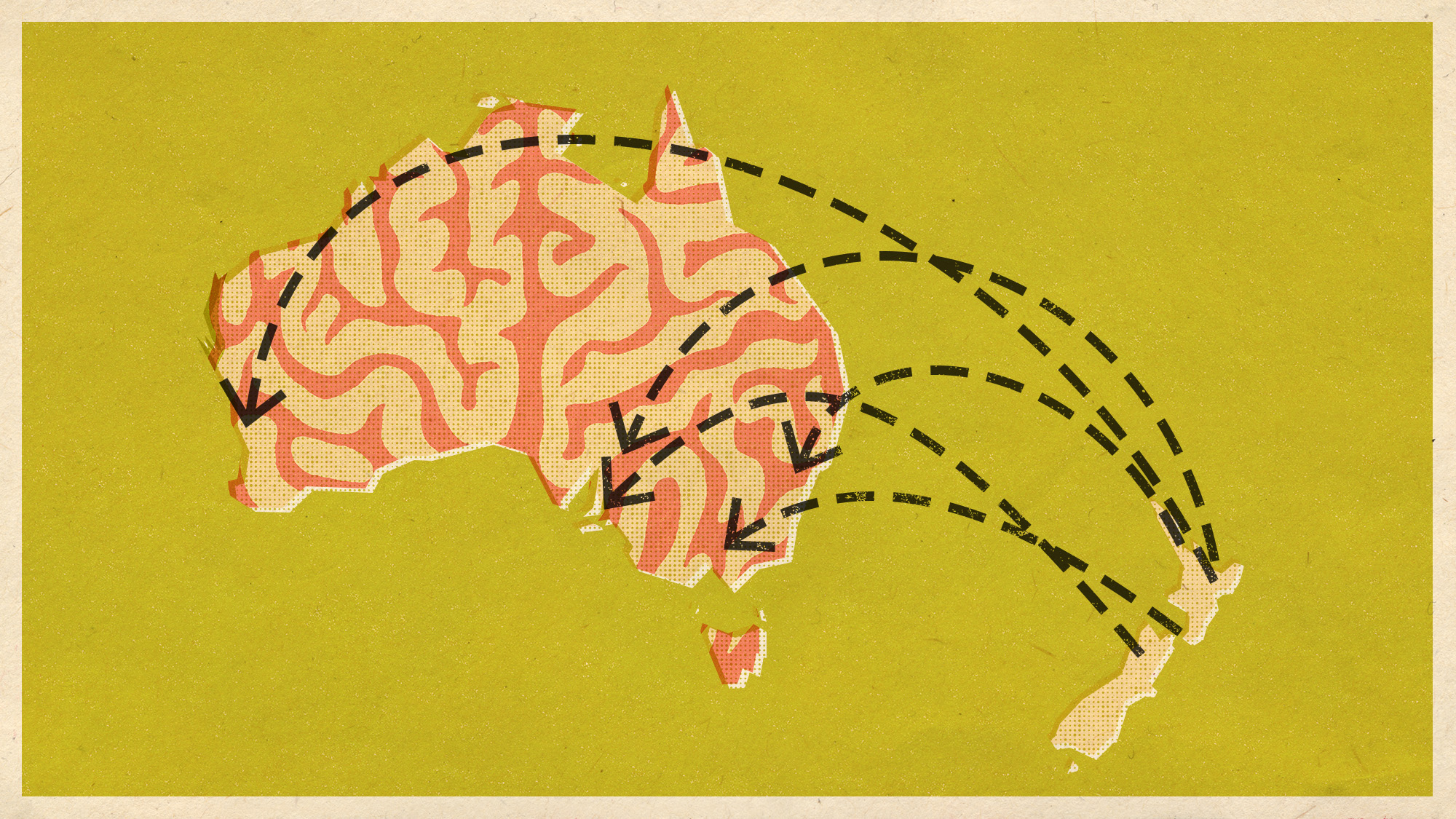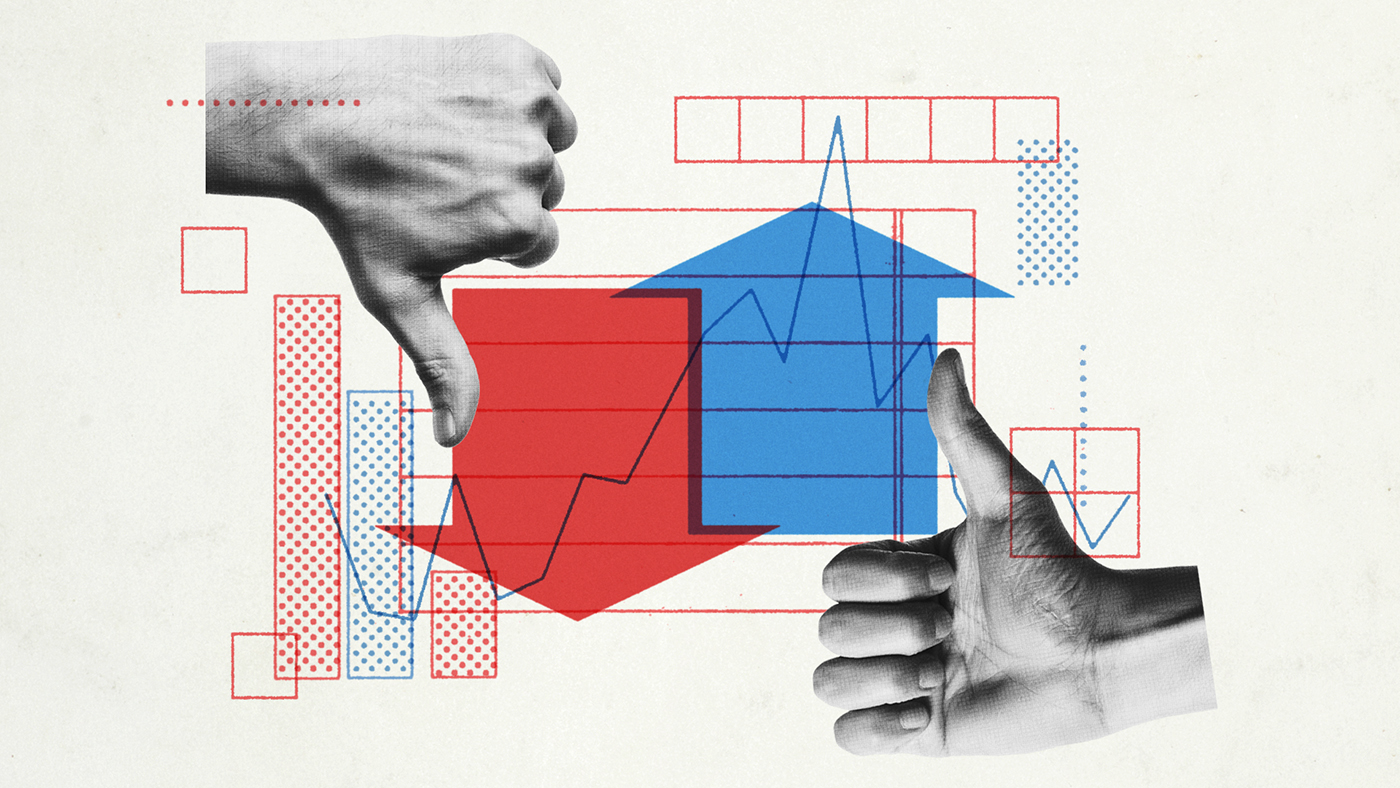OECD: global economy will suffer for ‘years to come’
Think tank says past predictions of doom already seem optimistic

A free daily email with the biggest news stories of the day – and the best features from TheWeek.com
You are now subscribed
Your newsletter sign-up was successful
The global economy will suffer for “years to come” as a result of the ongoing coronavirus pandemic, according to the Organisation for Economic Co-operation and Development (OECD).
Angel Gurria, OECD secretary general, told the BBC the economic shock was already bigger than the financial crisis.
He added that recent warnings that a serious outbreak could halve global growth to 1.5% already looked too hopeful.
The Week
Escape your echo chamber. Get the facts behind the news, plus analysis from multiple perspectives.

Sign up for The Week's Free Newsletters
From our morning news briefing to a weekly Good News Newsletter, get the best of The Week delivered directly to your inbox.
From our morning news briefing to a weekly Good News Newsletter, get the best of The Week delivered directly to your inbox.
–––––––––––––––––––––––––––––––For a round-up of the most important stories from around the world - and a concise, refreshing and balanced take on the week’s news agenda - try The Week magazine. Get your first six issues for £6–––––––––––––––––––––––––––––––
Earlier this month, the think tank - an intergovernmental economic organisation with 36 member countries - said that even in a “best case” scenario, there would be a “sharp slowdown” in world growth for the first half of this year as supply chains and commodities are hit, tourism falters and confidence collapses.
However, Gurria has now set aside those earlier forecasts, offering a starker warning. “Even if you don't get a worldwide recession, you're going to get either no growth or negative growth in many of the economies of the world,” he said.
Dismissing hopes that economies would simply bounce back as “wishful thinking”, he added that policymakers from the G20 nations had some weeks ago believed the recovery would take a “V shape” - with a short, stark fall in economic activity followed quickly by an equivalent rebound.
A free daily email with the biggest news stories of the day – and the best features from TheWeek.com
“It was already then mostly wishful thinking,” he said. “I do not agree with the idea of a ‘V’ shaped phenomenon... Right now we know it’s not going to be a ‘V’. It’s going to be more in the best of cases like a ‘U’ with a long trench in the bottom before it gets to the recovery period. We can avoid it looking like an ‘L’, if we take the right decisions today.”
Describing the uncertainty of what is to come, he added: “We don’t know how much it’s going to take to fix the unemployment is because we don’t know how many people are going to end up unemployed. We also don’t know how much it’s going to take to fix the hundreds of thousands of small and medium enterprises who are already suffering.”
The OECD says there should be a four-pronged plan to deal with the coronavirus, including free virus testing, better equipment for doctors and nurses, cash transfers to workers including the self-employed and tax payment holidays for businesses.
The speed and severity of the current market downturn has shocked experts, with the FTSE, Dow Jones Industrial Average and the Nikkei all hit by huge falls since the outbreak began at the end of December.
United Nations Secretary-General Antonio Guterres warned last week that a global recession, “perhaps of record dimensions”, was a near certainty.
-
 How the FCC’s ‘equal time’ rule works
How the FCC’s ‘equal time’ rule worksIn the Spotlight The law is at the heart of the Colbert-CBS conflict
-
 What is the endgame in the DHS shutdown?
What is the endgame in the DHS shutdown?Today’s Big Question Democrats want to rein in ICE’s immigration crackdown
-
 ‘Poor time management isn’t just an inconvenience’
‘Poor time management isn’t just an inconvenience’Instant Opinion Opinion, comment and editorials of the day
-
 What's Jeff Bezos' net worth?
What's Jeff Bezos' net worth?In Depth The Amazon tycoon and third richest person in the world made his fortune pioneering online retail
-
 'Brain drain' fear as record numbers leave New Zealand
'Brain drain' fear as record numbers leave New ZealandUnder The Radar Neighbouring Australia is luring young workers with prospect of better jobs
-
 Ghost kitchens are pulling a disappearing act
Ghost kitchens are pulling a disappearing actunder the radar The delivery-only trend is failing to live up to the hype built up during the pandemic
-
 The birth of the weekend: how workers won two days off
The birth of the weekend: how workers won two days offThe Explainer Since the 1960s, there has been talk of a four-day-week, and post-pandemic work patterns have strengthened those calls
-
 Why household wealth took off during the pandemic
Why household wealth took off during the pandemicUnder The Radar The Covid-19 pandemic caused a lot of pain and hardship, but new research shows it also left most Americans wealthier
-
 Empty office buildings are blank slates to improve cities
Empty office buildings are blank slates to improve citiesSpeed Read The pandemic kept people home and now city buildings are vacant
-
 Inflation vs. deflation: which is worse for national economies?
Inflation vs. deflation: which is worse for national economies?Today's Big Question Lower prices may be good news for households but prolonged deflation is ‘terrible for the economy’
-
 America's 'cataclysmic' drop in college enrollment
America's 'cataclysmic' drop in college enrollmentToday's Big Question "The slide in the college-going rate since 2018 is the steepest on record"